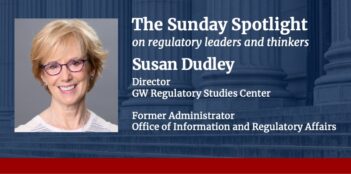
Industries brace for potential new disability accommodation obligations.
What recent White House public notice has some small-town movie theaters worried they might have to close their doors?
It is an announcement that a long-awaited Department of Justice (DOJ) disability access regulation is one step closer to completion. The White House Office of Management and Budget (OMB) has completed its final review of a proposed rule which has the potential to impact small businesses in a number of industries—not just local “movie houses”.
The DOJ’s proposed rule responds to the 2008 amendments to the Americans with Disabilities Act (ADA), Titles II and III of which regulate public entities and public accommodations, respectively. The DOJ first released an advance notice of proposed rulemaking about the implementation of the ADAAA in 2010. Now that the OMB has considered the feedback from the advance proposal, many suspect that the DOJ will soon publish its official notice of proposed rulemaking, formally launching its process of finalizing a new regulation.
The 2008 ADA amendments not only broadened the definition of “disability,” including the term’s meaning with regard to Titles II and III of the ADA, but also included significant guidance that expanded the types of activities that require accommodations for disabled individuals. This expansion of covered activities appears to be a primary concern for business owners.
In its advance notice, the DOJ expressed its opinion that movie theaters, as public accommodations, should provide “auxiliary aids” including captioning services for the deaf. However, a recent article contained an interview with the owner of a small movie house who is concerned that having to provide this captioning service would be costly for her business, since it would apparently require the theater to switch to digital video. However, the ADA amendments themselves do provide an exemption from the auxiliary aids requirement in situations where the financial burden would be overwhelming.
Although the case of small movie theaters is relatively narrow, some have anticipated the possibility that the proposed rule will include mandates on web accessibility—a subject that would have a much broader impact, including any businesses that use electronic communication forms. The Government is already subject to these requirements, but businesses may be soon to follow, given the number of civil suits that are emerging concerning web accessibility. Since web accessibility accommodation enforcement would be both broad and potentially burdensome on businesses that would need to update their current electronic communication systems to be accessible for a range of disabilities, progress in this area is expected to be slow, particularly “with such strong feelings, with arguments on both sides of the case and with complicated issues to work out.”



